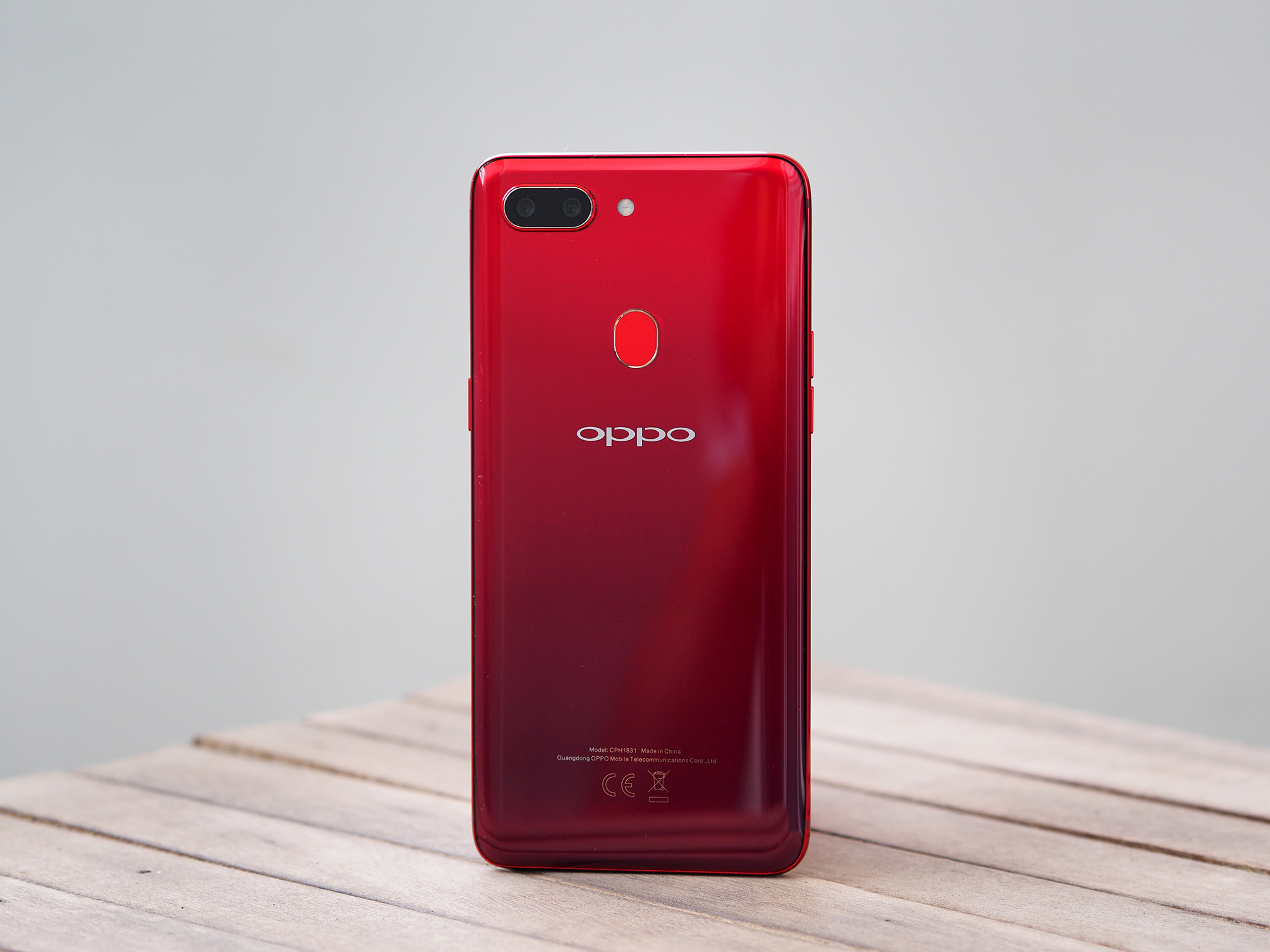Android Central Verdict
Price: $550Bottom line: The R15 Pro builds on last year's R11s with an all-new design and a Super AMOLED display that's one of the best in its category. The Ruby Red color option in particular looks incredible, and is easily one of the most evocative phones of 2018.
Pros
- +
Fantastic design
- +
Great AMOLED screen
- +
Decent camera
Cons
- -
MicroUSB charging port
- -
ColorOS needs a lot of work
Why you can trust Android Central
OPPO has managed to swiftly rise up the ranks in the smartphone segment over the last three years through a combination of aggressive marketing and a vast network of offline stores. Unlike brands like Xiaomi, which primarily sells phones online, OPPO built its business by focusing on the retail industry, opening tens of thousands of retail stores across Asian markets. The strategy has paid off handsomely for the brand, with OPPO now the fourth-largest smartphone vendor in the world. In fact, Xiaomi is now emulating the same retail model in India and China to maintain its sales momentum.
Aggressive advertising is only one half of the equation, however, and the product itself needs to match up to expectations for consumers to part with their cash. From the beginning, OPPO has focused on camera quality as a core tenet on its phones, and the manufacturer — along with sister brand Vivo — was one of the first to focus on selfie cameras.
That's the case with the R15 Pro as well: the phone has great cameras combined with an excellent display and a stunning design that grabs eyeballs. OPPO is starting to expand into Western markets, and while the R15 Pro isn't on sale outside of Asia just yet, it gives us an insight into the direction the brand is taking.
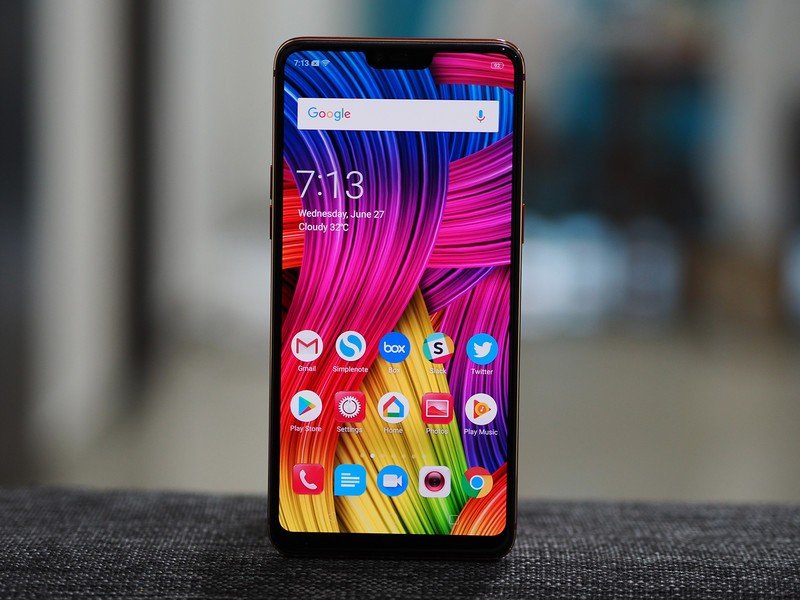
OPPO R15 Pro What I like
Like most phones launched this year, the R15 Pro comes with a glass front and back, with Gorilla Glass 5 protection on both sides. The highlight of the phone is the gradient pattern at the back — based on how the light strikes the device, it alternates from a vibrant red to a more crimson hue. In short, it looks stunning.
OPPO calls this particular option Ruby Red, and it's easily one of the best designs the company has come up with thus far. The effect isn't quite as iridescent as the Honor 10, but it is striking nonetheless.
OnePlus used the R11 as a model for the OnePlus 5 last year, but things are different this time around. Although both the R15 Pro and the OnePlus 6 offer the same 6.28-inch display, there are major differences in the design language — the R15 Pro doesn't have rounded edges, and is marginally narrower and thicker at the back.
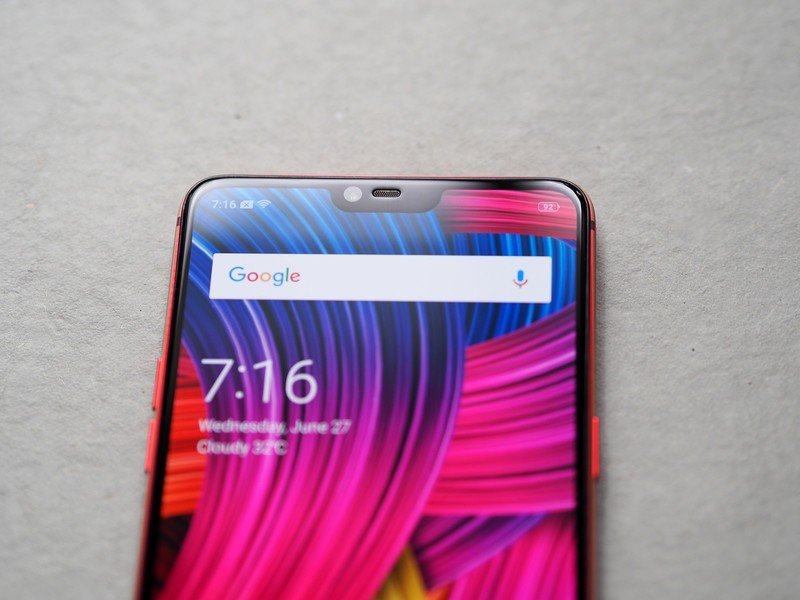
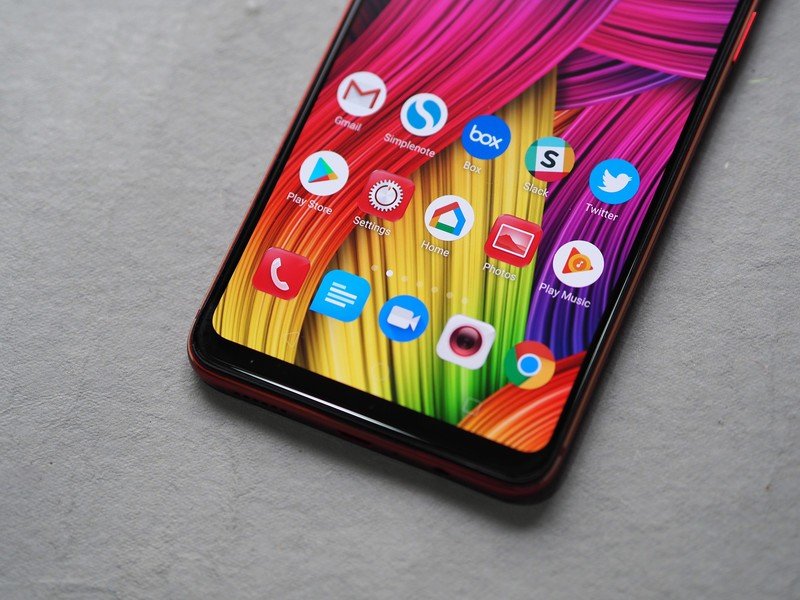
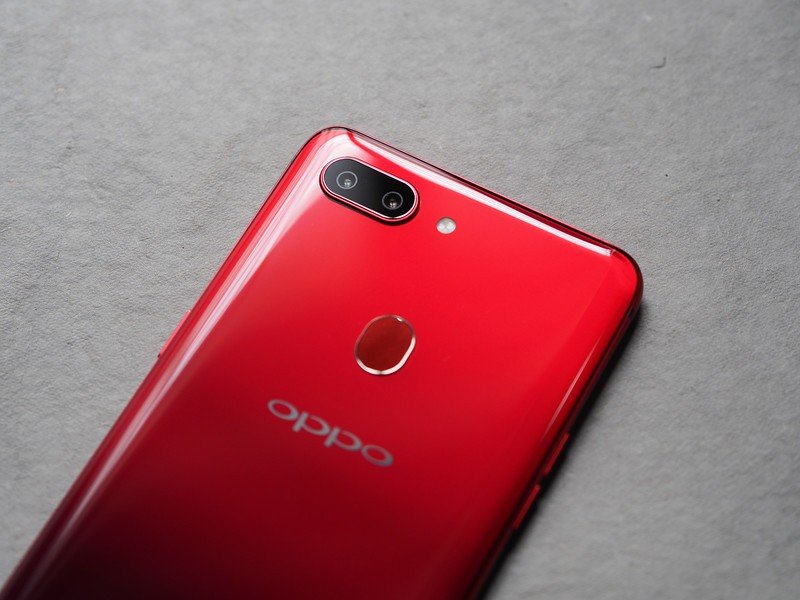
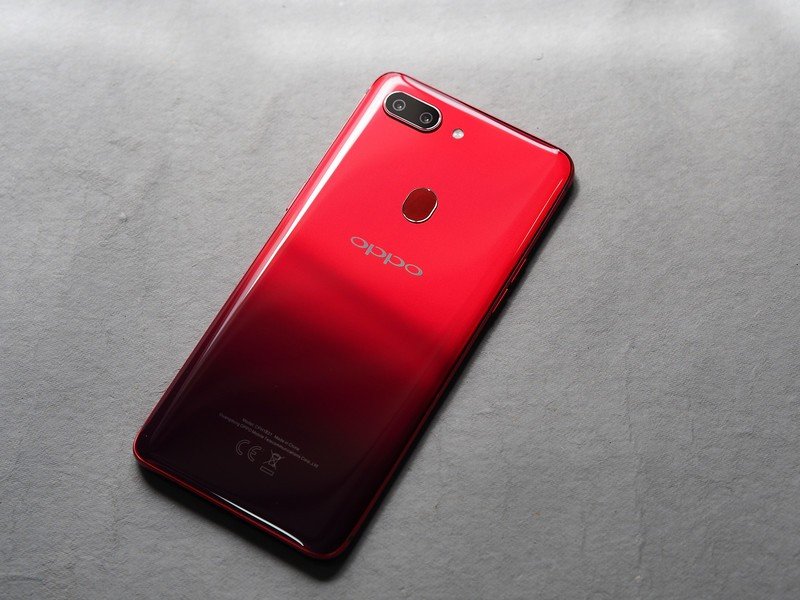
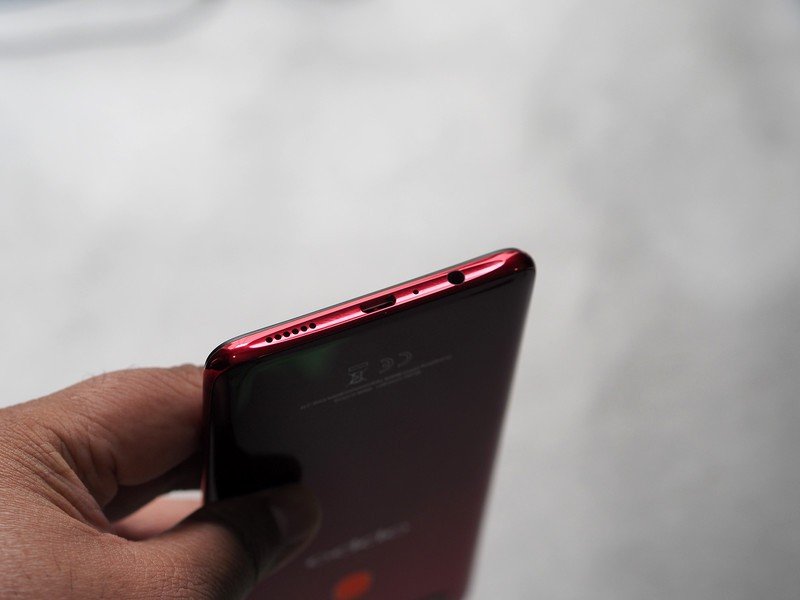
The R15 Pro has a power button on the right and volume buttons on the left, and there's a headphone jack located at the bottom of the device. You get a single speaker, and it gets sufficiently loud and detailed — but it obviously isn't as good as phones that offer stereo speakers.
The 6.28-inch Super AMOLED display is fantastic, offering vibrant colors, excellent contrast, and great viewing angles. I had no issues reading the screen in harsh sunlight, and the panel goes all the way down to 2 nits, making it conducive for reading at night. You don't get the option to select from sRGB or DCI-P3 modes, but there is a setting to adjust the color balance. And like most phones available today, you get a blue light filter for night-time reading.
The color at the back switches from a vibrant red to a crimson hue, and it looks incredible.
On the subject of battery life, I was easily able to get day's worth of battery consistently from the 3400mAh unit on the R15 Pro. The one downside in this area is that the phone charges over Micro-USB, like the Vivo X21. There's no place for a Micro-USB port on a $500 phone in 2018, but for what it's worth both Vivo and OPPO finally made the switch to USB-C with their latest flagships.
The phone features OPPO's VOOC fast charging solution, which works in the same fashion as Dash Charge. OnePlus, in fact, licenses VOOC from OPPO and rebrands it to Dash Charge. VOOC works at 5V and 4A, resulting in a 20W charge. You get a proprietary wall charger along with a Micro-USB cable in the box, and using a third-party charger will limit the charging output to 10W.
With VOOC fast charging, you'll be able to top up from zero to 57% in just 30 minutes, and it takes just over an hour and a half for the battery to fully charge. As is the case with most Chinese manufacturers, ColorOS comes with a host of battery-saving optimizations that let the device eke out the most out of the battery.
| Specs | OPPO R15 Pro |
|---|---|
| Screen | 6.28-inch FHD+ Super AMOLED |
| Chipset | Snapdragon 660 |
| RAM | 6GB |
| Storage | 128GB |
| Rear Camera 1 | 16MP, ƒ/1.7 |
| Rear Camera 2 | 20MP, ƒ/1.7 |
| Front Camera | 20MP, ƒ/2.0 |
| Battery | 3400mAh |
| Connectivity | Wi-Fi 802.11 ac, BT 5.0 |
| Security | Fingerprint sensor |
| Colors | Ruby Red |
| Dimensions | 156.5 x 75.2 x 8mm |
| Weight | 180g |
| Price | $550 |
Whereas OnePlus is all about offering flagship-level performance at the $500 mark, OPPO's main area of focus is the camera department. OPPO's tagline continues to be "Camera Phone", making it clear where the brand's priorities lie. The dual 16MP + 20MP shooter on the R15 Pro does a fantastic job taking photos in daylight conditions, and is much better at handling low-light scenarios when seen against its predecessors.
While the OnePlus 6 isn't quite a carbon copy of the R15 Pro, it uses most of the same internal components. As noted above, both phones feature the same 6.28-inch display, and the R15 Pro also has the same 16MP + 20MP dual camera arrangement at the back — including the same sensors. The OnePlus 6 has a slight edge in this area as the R15 Pro is missing out on the Snapdragon 845's excellent image signal processor, but in most everyday shooting conditions the R15 Pro manages to hold its own in this category.
The camera app itself is identical to what you'd find on the OnePlus 6, with OPPO offering an AI-assisted selfie mode that automatically removes blemishes and cleans up your portraits. The AI feature also recognizes over 120 scenes — much like the P20 Pro. The rear camera has portrait mode, and you'll be able to choose from various soft lighting options, including film light, tone light, and more.


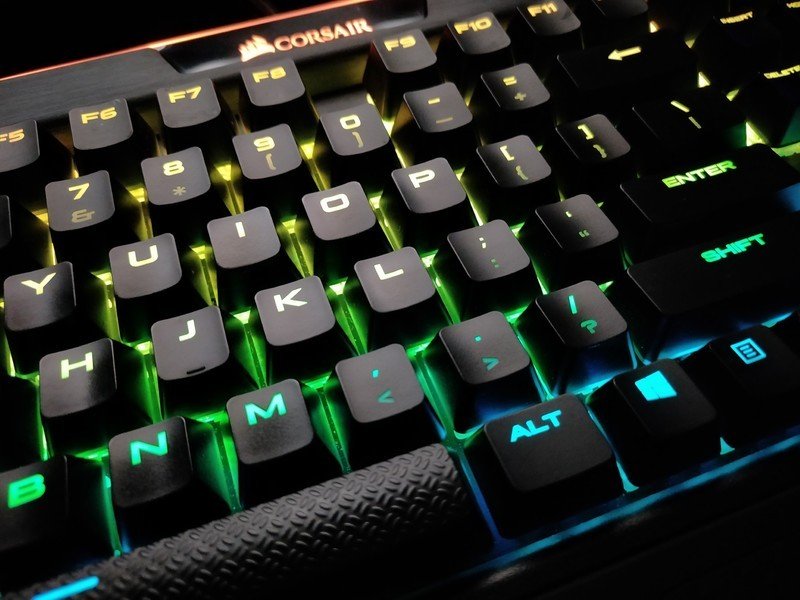
OPPO also offers a face unlock feature on the R15 Pro, facilitated by the 20MP camera at the front. The feature is just as fast as what you'd find on OnePlus phones, with OPPO stating that it uses 120 different points to identify your facial patterns accurately.
If you're not looking to use the face unlock feature, the fingerprint sensor on the R15 Pro works reliably in everyday situations. The oblong nature of the sensor ensures there's more than enough surface area to authenticate, and it is just as fast as other phones in this category. Unlike the OnePlus 6, the R15 Pro is rated IP67 for dust and water resistance. The phone also has NFC, facilitating Google Pay.
Like last year's R11 and R11s, the R15 Pro is powered by a Snapdragon 660, one of the best chipsets you'll find in this category. The phone also comes with 6GB of RAM and 128GB of storage as standard, and the secondary SIM card slot doubles up as a microSD slot. I faced zero issues using the phone on a day-to-day basis, and while ColorOS has its share of quirks, it doesn't affect the performance of the device in any way.
The R15 Pro also has a dedicated gaming mode that mutes incoming notifications when you're in the middle of a game.
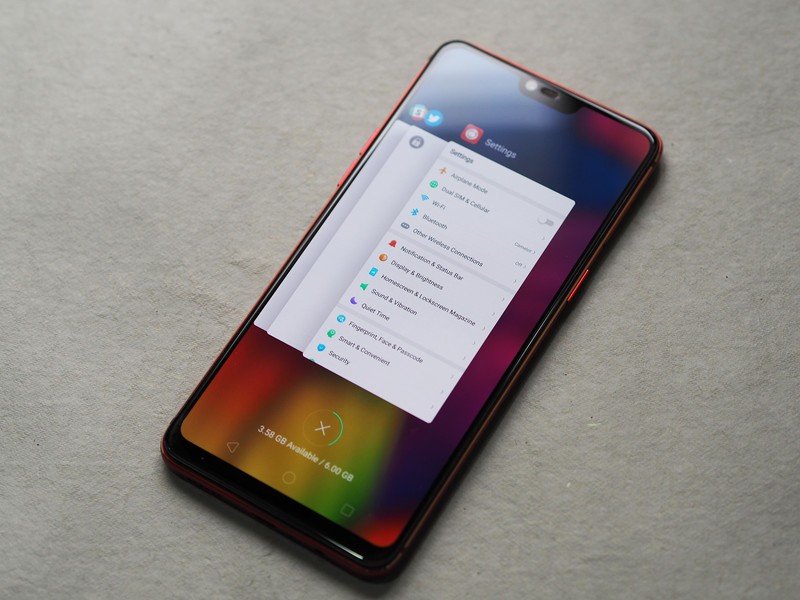
OPPO R15 Pro What needs work
Like most other Chinese manufacturers, OPPO offers a custom skin on its phones, called ColorOS. The latest version is the Android 8.1 Oreo-based ColorOS 5.0, and it includes several new features and even more customization options. You get navigation gestures much like those found on OxygenOS, retooled icons, and a new AI feature that speeds up app launch times by predicting your usage behavior.
ColorOS has plenty of customizability, but it is heavily skinned.
While the customization options are welcome, the interface itself needs a lot of work. There's no app launcher, the settings pane needs an overhaul, and there's a lot of duplication when it comes to the stock apps. That's understandable given that there's no Play Store in China, but the international version of ColorOS also comes with OPPO's suite of apps.
For all of its foibles, ColorOS isn't anywhere as bad as Vivo's Funtouch OS. Install a custom launcher and an icon pack and you won't even notice a majority of the interface quirks. In this regard, ColorOS is more akin to EMU and MIUI — there's a lot of customization available should you want it, but you can get rid of it if you prefer a cleaner look.
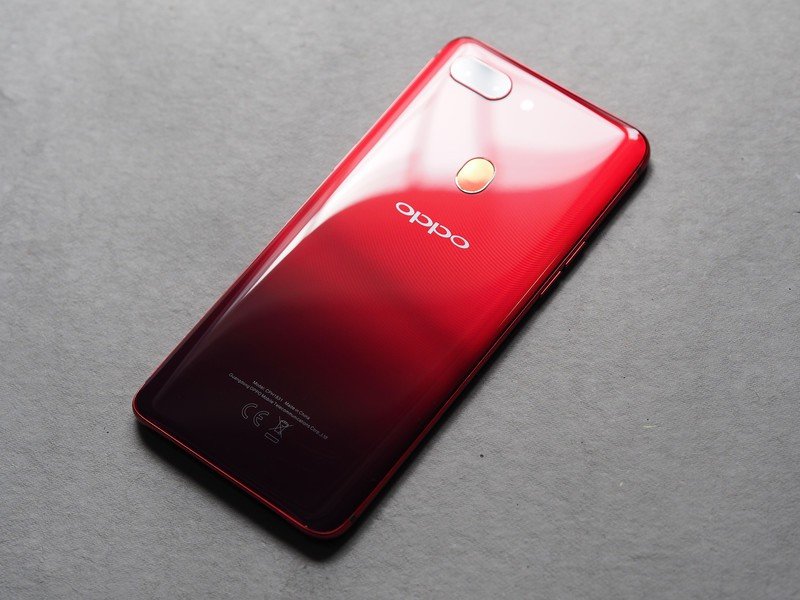
OPPO R15 Pro Should you buy it?
OnePlus admitted last year that it sources components from OPPO as a way of saving costs, and even though the company announced that it sold a million units of the OnePlus 6, that's nowhere enough the volume needed to justify the low price.
That's where OPPO comes in: the brand is currently the fourth-largest smartphone manufacturer globally, and it has a much bigger presence in China and India, allowing it to secure better deals with component makers. Reusing components between companies makes sense from a business perspective, and unlike last year, both devices are distinct enough that most consumers don't care about the fact that both brands are owned by the same corporate entity.
Overall, the R15 Pro is a great addition to OPPO's mid-range portfolio. The phone builds on what we saw last year with the R11 and R11s, introducing a new Super AMOLED display and much better cameras. The design has also received an overhaul, and the Ruby Red option is one of the best-looking phones you'll see in 2018.
4 out of 5
The R15 Pro isn't actually up for sale outside of a few Asian markets, so it's highly unlikely you'll be able to get your hands on one. That said, the phone is a bellwether for OPPO's ambitions in the mid-range segment as the brand starts making its foray into Western markets.

Harish Jonnalagadda is Android Central's Senior Editor overseeing mobile coverage. In his current role, he leads the site's coverage of Chinese phone brands, networking products, and AV gear. He has been testing phones for over a decade, and has extensive experience in mobile hardware and the global semiconductor industry. Contact him on Twitter at @chunkynerd.
